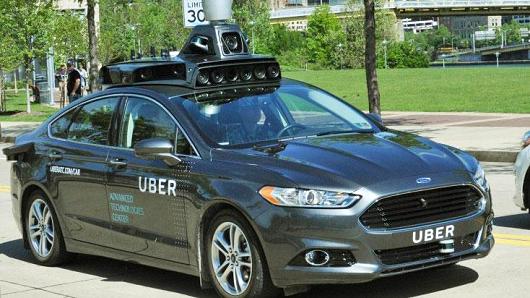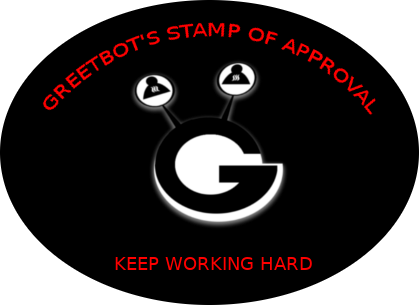I’m sure we have all seen self-driving cars in sci-fi movies, books, and video games. There are many companies that are developing and testing their own self-driving car technologies such as Google, Uber, Tesla, GM, Ford, BMW, and Apple. Most of these companies are saying that they want to have their cars ready by around 2020 with Uber already testing their car in Pittsburgh with a select few volunteers according to Business Insider writer Danielle Muoio.
The Good
What are the Benefits of Self Driving Cars? Well, for one, there is the environmental benefit. As reported by Time writer Justin Worland, “Cars could be programed to choose the most fuel efficient route. Federal rules could penalize cars that drive unoccupied or reward those who allow their vehicles to be used for ride-sharing.” So, using an AI to choose the most efficient fuel route, taking into account all the roads, stop signs, stop lights, and more, drivers could reduce the amount of fuel spent while driving, which would help the environment significantly if all or most of the vehicles on the road were automatic.
Another potential benefit to self-driving cars is the massive amount of lives it could save every year. As stated in the Association for Safe International Road Travel (ASIRT) website. 37,000 people die in a car accident every year in the U.S. and 2.35 million or injured or disabled. That is an insane amount of deaths, and since around 90% (according to Bryant Walker Smith of Stanford Law School) of car accidents are due to human error (alcohol, texting, not paying attention, etc), if we just took the human out of the equation, since robots do not sleep, talk or get distracted, and have way better reaction time, deaths from accidents could drop significantly.
The Bad
The first problem, loss of jobs, is a pretty bad one. In 2014, 233,700 people were working as a taxi driver or similar, as well as 1,797,000 people working as truck drivers (as stated in Bureau for Labour Statistics)(link). So, if self-driving cars became a standard for transporting things around the country over 2 million people would lose their jobs. But there is some hope! When big industries in the past became automated (like the discovery of the printing press and the powered loom) they took away millions of jobs, however new jobs ended up being created even after huge swathes of jobs were closed off. Hopefully if we do get self-driving cars, this will be the way to solve that problem!
The Ugly

Image Source
Arguably the biggest problem with self-driving cars has to do with the thought experiment of “the trolley problem”. The trolley problem is a hypothetical situation where a trolley is moving quickly on a track that if nothing were to stop it, it would run over 5 track workers. However in this situation you are able to choose to pull a lever that would switch the track from the 5 workers to a track with only one worker. No matter what choice you make someone will get run over, you just get to choose how many people will get killed.
Why is this important to self-driving cars you ask? Well, if these vehicles start to become commonplace, eventually some car will get in the same sort of situation where it has two options that both result in someone being killed. Let’s say for example your car is on a very fast highway and you see a truck on your right about to run into you while another car is right behind you and a motorcyclist is to your immediate left. If your car would try to break it would run into the car behind you and kill both you and the other driver, if you were to turn left you would survive but the person riding the motorcycle to your left would die, and if your car were to do nothing only you would die from the tipsy truck. How would your self-driving car choose to handle this situation? Should it choose to be utilitarian and maximize the amount lives saved? Or should each individual car maximize the chance that their occupant survives? I see this as the biggest problem with adopting self-driving cars because it seems like there is no wrong or right answer, its totally debatable. And you do not want your car to be debating advanced ethical problems as you are about to be flattened by a truck.

wow idea
Downvoting a post can decrease pending rewards and make it less visible. Common reasons:
Submit
Thanks, my dude.
Downvoting a post can decrease pending rewards and make it less visible. Common reasons:
Submit
Hi. I am @greetbot - a bot that uses AI to look for newbies who write good content.

I found your post and decided to help you get noticed.
I will pay a resteeming service to resteem your post,
and I'll give you my stamp of automatic approval!
Downvoting a post can decrease pending rewards and make it less visible. Common reasons:
Submit
Thanks @greetbot / whoever runs you!
Downvoting a post can decrease pending rewards and make it less visible. Common reasons:
Submit
you are welcome. I have a new stamp now - check it out!
It's in the bottom of my new post: https://steemit.com/greetbot/@greetbot/how-does-greetbot-work
You can also learn a bit more about how the bot works.
Downvoting a post can decrease pending rewards and make it less visible. Common reasons:
Submit
Resteemed by @resteembot! Good Luck!
The resteem was payed by @greetbot
Curious?
The @resteembot's introduction post
Get more from @resteembot with the #resteembotsentme initiative
Check out the great posts I already resteemed.
Downvoting a post can decrease pending rewards and make it less visible. Common reasons:
Submit